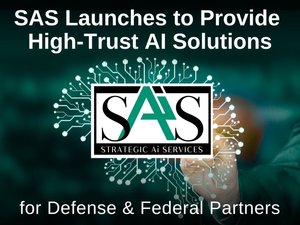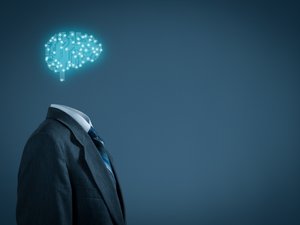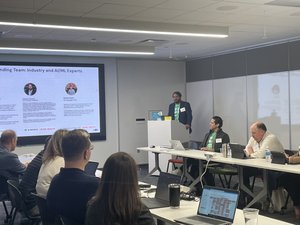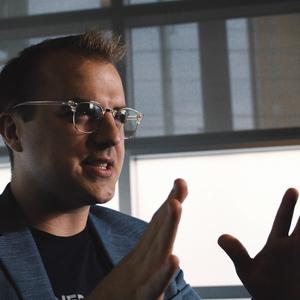
Even as it grows in popularity and use, there are many unknowns and questions surrounding the future of artificial intelligence.
That holds true for all industries, but two are especially immersed with opportunity through the new technology — health care and education.
The BBJ sat down with local experts who use and teach AI every day to gauge their perspective on the future of AI in the Birmingham ecosystem and larger global markets.
Chris Sims, founder of business coaching company Cavu and president of Sigao Studios, believes that AI will experience even more rapid growth once its usage becomes more common.
“While AI is flashy, it’s going to get the news and that gets people aware of it, which is a good thing,” Sims said. “We’re still in really early days ... but when it starts solving boring everyday problems none of us really want to do, that’s when we’re going to see even more rapid growth beyond what it is today.”
Sims said education will be one of the main industries affected by AI, particularly as educators learn how to implement it in the classroom. He compared this shift to that of the internet and cell phone, both of which educators had to adapt to and learn how to fold into classroom learning.
“Education, I think, is an area that has lots of great possibilities of what it can do for students and teachers bringing it in at an early age,” he said. “Kids that grow up talking to chat bots, talking to a computer that can simulate a human to a high level of detail – how does that impact their development? Their understandings, perception, reality is going to be different ... figuring out what that means to cognitive development throughout different ages is going to be vital.”
Rubin Pillay, professor of medicine and assistant dean of UAB’s Marnix E Heersink School of Medicine, agrees that AI-focused education is important to ensuring the proper usage of it in the future. Pillay said he believes AI will revolutionize medical procedures and processes going forward, so training medical professionals to use it properly is imperative.
“Ultimately, it’s going to boil down to decisions that we make as individuals and as a collective – decisions about how we design AI, how we develop them, how we deploy them and monitor them, amongst other things,” he said. “You have to have people who understand it, and this is really important in medicine specifically because the downside can be devastating; people could lose their lives.”
To help better help Birmingham’s health care professionals prepare for the effects and developments of AI, UAB will now be offering multiple AI-focused degree programs to students. These programs include an AI in medicine graduate degree, technical expertise in AI master’s degree, a doctorate for AI in media, executive doctorate in health leadership and graduate certificate program for AI in nursing.
Pillay said AI could be the last great invention to solve problems and improve processes in health care. Some of the ways he believes this will manifest are by better predicting onsets and trajectories of diseases, improving accuracy in diagnoses, individualizing treatment for patients, speeding up the drug discovery process, automating managerial and administrative health care processes and bolstering workplace morale by easing physician burnout.
“For this to be the miracle that we want it to be and hold the promise that we want it to, we need a critical mass of people in health care who understand this,” Pillay said. “We've been very deliberate in trying to ensure that all stakeholder groups in health care ... have the opportunity to upskill in this area.”
Sims said that AI development is very close to reaching artificial general intelligence (AGI), which is a model that can act, think and reason at the same level as a human being can.
“If they actually start hitting AGI, they’re going to have to slow down because of the moral ethics behind what’s going on there,” Sims said. “And then, there’s even more advanced systems that can go faster and are more advanced than humans, which is the next step.”
Though their expertise pertains to different industries, Sims and Pillay both said that proper and careful use of AI will ensure safe development going forward.
“It’s this balance between promise and peril, miracle and menace,” Pillay said. “Ethical decision-making is going to be critical.”








